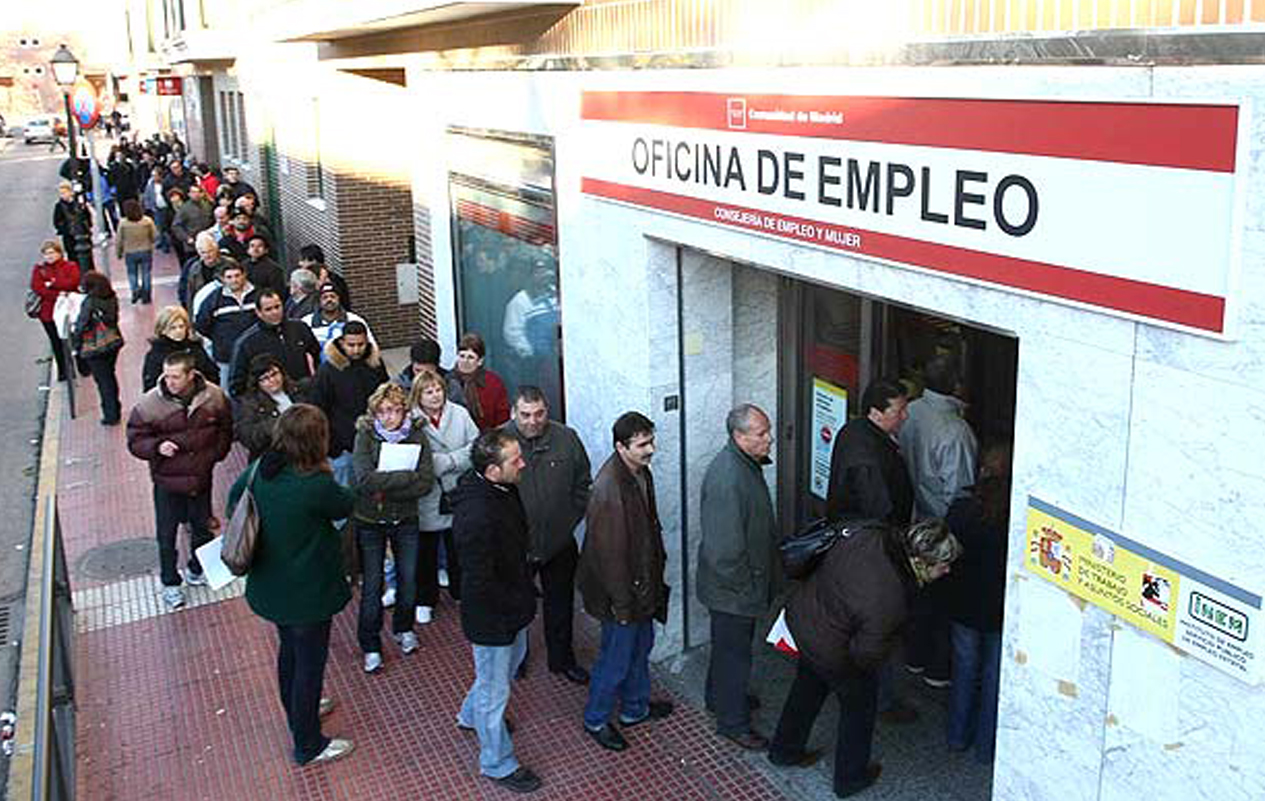Spain’s President of the Government, was recently loose (but sadly not lost) in China trying to sell a chunk of Spain’s debt to the canny Chinese. This must be the nth mistake in his disastrous seven years in power – without a majority. It is possibly his worst. He has broken all his promises to the young people of Spain, to whom he offered the world, and who are left with nothing but a useless degree or pair of hands. There are no jobs for Spain’s young people – qualified or not.
43+% of young men and women fit and able for work have no jobs. There is nothing on the horizon for them, short or long-term. Besides, the phantasy of the Dole is forcing them to leave Spain altogether, seeking work in other countries which, if and when they find it, will be guaranteed to make them have no wish to return.
It is not for lack of trying on Sr. Zapatero’s part. In the nearing elections there will be two million recently qualified new voters. Zapatero is talking to them now about the PSOE’s ‘success’ in producing the best educated generation in Spain’s history. Apart from the uncertain veracity of this appreciation, the ‘best educated generation’ is still living at home under its parents’ roof, with no way of contributing to the cost of food and energy they consume, the water (or anything else) they drink, the clothes on their back, or the fuel for their 5-year old scooter. Even if they are fortunate enough to have jobs, the cost of housing is so elevated they have no chance of buying their own roof, or even renting one. They also have to listen to the President’s demagogic rhetoric, which might not put them in the best of moods.
No-one knows how much longer the youth of this country will put up with dishonesty and empty promises. Not very long ago in France city streets exploded in flame and mindless destruction for precisely the same reason. And to make things historically worse, a previous president (of the Second Republic), was another who tried to sell Spain to an immense foreign power. Negrín did his level best to flog Spain to Soviet Russia in the 1930s, but he was received with much the same scepticism that Zetapé is now getting from the Chinese, whom, I suspect, know far more about the real state of Spain’s economy than Zapatero does. After all, the Chinese were successful businessmen and exporters with two or three international deepwater ports when Spain was no more than an arid desert dotted about with castles. Meanwhile the youth organisations here are carefully but speedily orchestrating protest. It cannot be long before the police batons will be at work breaking twenty-year old heads.
 Here are a few statistics, which often tell us more about a situation than any newspaper article:
Here are a few statistics, which often tell us more about a situation than any newspaper article:
87% of people between 18 and 24 live with their parents because they have to.
2% of young people between 16 and 34 managed to create their own employment in 2009.
44% of university leavers occupy jobs inferior to their qualifications, or that bear no relation to them.
Only 8.1% of young people with jobs are members of a trade union.
In Holland only 7.4% of young people are out of work.
In Germany only 7.9% of young people are out of work.
In Slovenia and Lithuania around 31% of young people are unemployed, 12% less than Spain.
In Greece the figure is 36%, 8% less than Spain.
In 2004, 1,097,000 young people left Spain looking for work elsewhere.
In 2011, 1,416,000 young people have already gone.
Andrés Vicente Oñate is 24, has his bachillerato plus a First in Commercial Management and Marketing. He works as a waiter in Madrid.
Pablo Gallego is 22: he is qualified in Impresariales. The only work he can get is doing practicas with companies which give him 400 euros per month. The word practicas is interesting: in most cases it means the full or half-time employment of a youngster under the pretext of ‘practising the job’, a kind of apprenticeship. Using this system the employer gets very cheap labour from a youngster doing the same job as a fully employed, fully paid and nationally insured employee.
The Ministers disagree
Minister of the Interior Alfredo Pérez Rubalcaba, Treasury Minister Elena Salgado and the Minister of Labour Valeriano Gómez all gave different figures when explaining the actual situation in a recent Congress debate on the Economy. Gómez rightly predicated that the next official figure for the unemployed will be nearer 5 million than 4 million, whereas Rubalcaba and Salgado offer more optimism, though all three are obviously concerned by a recent official poll which revealed that the most vociferous group among those demanding an immediate General Election, is the group that includes young Spanish people aged between 25 and 34 years.
Javier Arenas and Andalucía
Señor Arenas has had a dream for at least twenty-five years. He wants to be president of the huge southern Spanish region, Andalucía. In Madrid he has held various ministries, and been a Vice-President under Aznar. This would be enough for most men, but this one, who has been a ‘young wizard’, will never be satisfied until he rules his own hot, arid and difficult region, where there are flamencos, hundreds of kilometres of outstanding beaches, and an extraordinary capital – Sevilla- which is unique. What Arenas is after is the hot seat in the palace of San Telmo, sadly occupied for as long as one can remember by the PSOE.
For the socialists, Andalucía is not much more than an embarrassment at the moment, riddled like a mouldy apple with corruption, a sink-heap of get-rich-quick entrepreneurs where whole families of politicians are up to no good for money: a dry and unpromising place where the Junta ( parliament) is a by-word for massive fraud (no few than seven million euros of public money were siphoned off into private pockets using false employment sheets – socialist sympathisers were ‘sacked’, and there paid finiquitos from Andaluz companies they had never set foot in!
Though Andalucía has always been known as an entirely socialist feudal property, there are indications that the PSOE may lose its grip on May 22, in the local and regional elections. In those dozens of electoral stations which serve less than 5000 citizens, thetre may have been a massive swing in voting opinion. Who knows? Despite the fact that Chavez, who was the emperor of Andalucía for more than twenty years, has allegedly been up to every trick in the book, accompanied by a daughter and a son, and who had to be uprooted from Sevilla and kept safe in Madrid a year or two ago – apparently just in time – is now Third Vice-President with the special task of insulting the Popular Party in Congress; despitre the fact that Griñan, Chavez’ replacement in the presidency of Andalucía, is tarred with the same brush of corruption – despite these and dozens of other embarrassing factors, the Andaluces may well sigh and mutter the Spanish equivalent of ‘there’s always been Starkadders at Cold Comfort’ and vote for the PSOE yet again. If not, a recently rejuvenated, thinner, more precise Javier Arenas may find his dream coming true.








“87% of people between 18 and 24 live with their parents because they have to.”
This intrepretation of the statistics is misinformation of the most blatant kind. Take a look at the percentage of the same people living with their parents in the so-called boom years and you will see you have no idea how to intrepret a “fact”. Young people TRADITIONALLY do not leave their homes EVEN if they have WORK. And Spain has no part-time, or seasonal work culture.
I am Dutch and live and work in Spain. Of course there is a seasonal work culture, it’s called tourism.
In Spain few people want to do a good job. It’s always ‘no pasa nada’ and mañana and therefore this country has gone down the drain. The good news is that it will get much worse so I am hoping they’ll learn from it. Then again, I doubt it. The climate is ok, the country side is pretty but anything the Spanish put their hands on gets messed up.